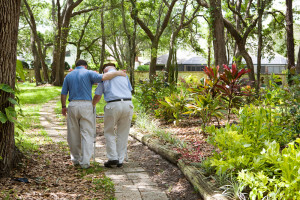WHERE DID THE BODY MAN GO?

In bygone years, as people aged and got wobbly and dotty, there were well-muscled care-givers who were like a handy man. I remember one named “Will” who used to chase after old lady “Hen” who lived on the Chesapeake Bay. An elderly white-haired acquaintance in rural Massachusetts sadly didn’t have a keeper; one day he filled a suitcase with clocks and trudged down his country road into oblivion.
Body Men would be companions to the old fellows, old gals, and follow them around, make sure they didn’t wander away. Help them to the toilet. And when they got too decrepit to ramble, they would change the bedding and do a wash-up. The family home was part of the arena. The younger generation loved and felt obliged to their creaky grandparents, and wanted to keep them around until they left their bodies behind.
Cultures change as do ways of living. In many countries the family is a tight-knit tribe all living together. Today that is unfashionable, at least in the USA. Once our three-deckers had generations arranged on separate levels – ground floor for the elders, the middle floor for the middle-aged, and the top floor for the children. The wonderful three-decker has sadly morphed into apartment houses, in our nation of a home for every family, and car for each. But rarely a place for the declining elder unable to care for himself. This trend initially brought Rest Homes, the first iteration of the Extended Living facility.
So, the noble, kindly Body Man. He surely must now be employed in the Health Care business, a nurse or nurse’s aide, hired to haul those flailing seniors around in the Extended Care places, places wryly referred to as storage units, where old folks sit strapped in chairs await recycling. Places void of the families they brought into life.
Well, as we age we do get odd and disgusting. Smelly and dirty and needing a keeper. Maybe that unpleasantness makes it easier to bid the final farewell to the once robust father, the erstwhile lovely and tender mother.
Or not.
They don’t do that here in Mexico. The only old folks’ home here, the “Asilo,” is one run by good-hearted nuns, a place maintained for those who have no families. Other old folks stay with their families, cared for until called Home.
Viva Mexico.
——————————————————————————–
I love your writing. This article is heart-felt and explains why I’m not leaving Mexico until I’m called Home. 😉
Right on! Thanks for responding, Dean.
A harsh truth for Americans, further proving the declination of familial bonds.
Pithy observation. Thanks, Lynne.
Hi Michelee. I beg to differ about the triple deckers. I always understood that the first floor was rented and they paid rent and basically heating the whole house. The middle floor was just the right temp for the owning family and the top floor was the hottest for the grandparents. Maybe the walk up two flights kept them going? Just what I heard, especially about Worcester, and the special clothes umbrellas that swung out from the porches. They were made in the Woo, by the Worcester Ladder Co.
The ones in Belmont were typically what I described, but of course the Worcester way was also done. The point is that families lived together and took care of their old ones.
Very nice, Michelee!
Thanks John. I miss you.
These tender years, as you describe, are becoming way too close for comfort yet inevitable, it seems. My one lovely daughter called yesterday to say she had done a brief work stint in a nursing home and found it so sad that she just wanted us to know she’d do everything in her power to prevent her father or me ever having to reside in this manner. Hurrah for loving children!
Very nice article Michelee1 See you in Alamos!
“wryly referred to as storage units, where old folks sit strapped in chairs await recycling.” So true so sad.